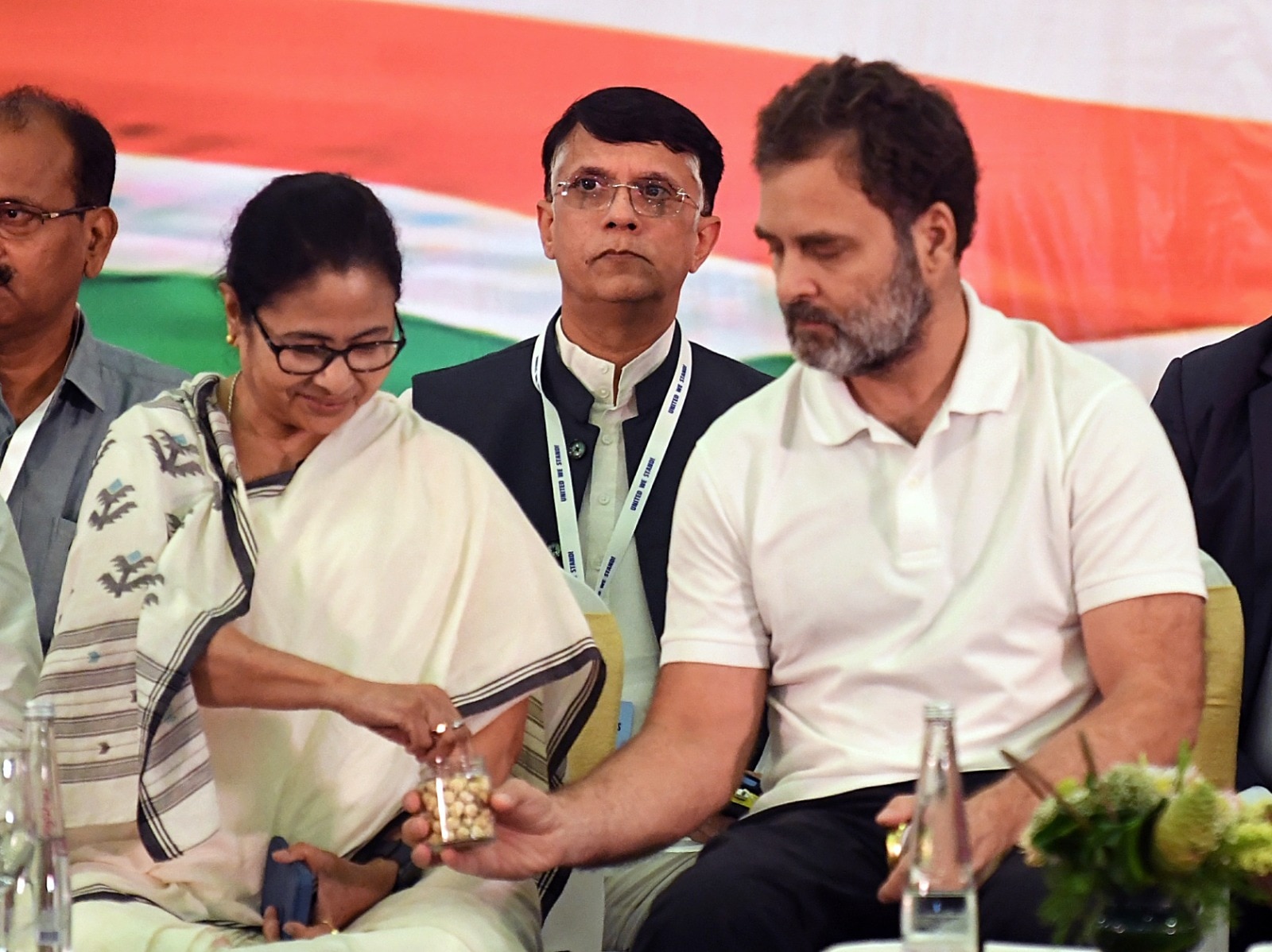The question of whether Congress should relinquish leadership of the INDIA bloc to Mamata Banerjee, the Trinamool Congress (TMC) supremo, has gained momentum amid dissatisfaction within the bloc. Congress, once the backbone of the Opposition alliance, faces criticism for its inability to provide cohesive leadership. With murmurs of discontent among allies, Banerjee’s name has emerged as a strong alternative to lead the bloc against the formidable Bharatiya Janata Party (BJP) juggernaut.
Mamata Banerjee recently signaled her willingness to step into the leadership role, stating in an interview with News18 Bangla, “I had formed the INDIA bloc. Now it is up to those leading the front to manage it. If they can’t run the show, what can I do? Everyone needs to be taken along.” Her statement reflects her confidence and readiness to take charge, a position she is arguably well-suited for given her track record.
Banerjee has demonstrated remarkable political acumen in steering the TMC through the volatile political landscape of West Bengal. Under her leadership, the once-dominant Communist Party of India (Marxist) was ousted, and Congress has been reduced to irrelevance in the state. Despite facing a resurgent BJP, which made significant inroads in the 2019 Lok Sabha elections, Banerjee managed to blunt its momentum in subsequent state elections, ensuring her party’s dominance.

In contrast, many of the INDIA bloc’s regional partners, such as the Samajwadi Party (SP), Rashtriya Janata Dal (RJD), and the Shiv Sena (UBT), have struggled to maintain relevance. The TMC, alongside Tamil Nadu’s Dravida Munnetra Kazhagam (DMK), remains among the few regional parties that have weathered the BJP’s electoral advances.
Congress’s precarious position in national politics is a significant concern for the INDIA bloc. While it has managed to hold power in states like Himachal Pradesh, Karnataka, and Telangana, its influence remains fragmented. The party’s tally of 99 seats in the 2024 Lok Sabha elections, though an improvement, underscores its limitations as a unifying national force.
Rahul Gandhi’s leadership style and the party’s perceived missteps—such as its handling of issues like the Adani controversy—have fueled criticism. Gandhi’s frequent reliance on international narratives, as seen in the fallout over U.S. President Joe Biden’s handling of domestic controversies, has further dented Congress’s credibility.
Banerjee’s ability to present herself as a grassroots leader, her administrative experience, and her proven electoral strategies make her an appealing candidate for leadership. She represents a robust and consistent opposition voice, capable of uniting disparate regional parties under the INDIA bloc’s umbrella. Crucially, her combative spirit could galvanize the bloc to challenge Prime Minister Narendra Modi’s dominance effectively.
The INDIA bloc’s survival and success hinge on decisive leadership. If Congress cannot unify and lead the alliance, passing the baton to Banerjee could reinvigorate the opposition’s campaign. However, this move would require significant adjustments within the bloc and Congress’s willingness to prioritize the alliance’s collective goal over its individual ambitions.
For now, the ball is in Congress’s court. Will it adapt to the evolving political landscape and cede leadership to Mamata Banerjee? Or will internal rivalries and indecision continue to plague the INDIA bloc’s quest to counter the BJP’s dominance? Time will tell.







